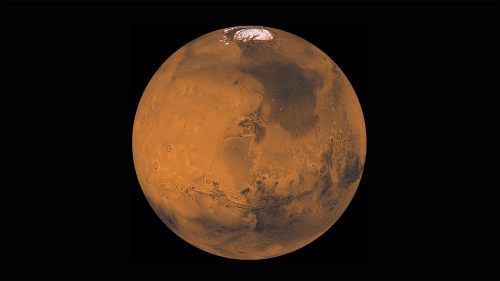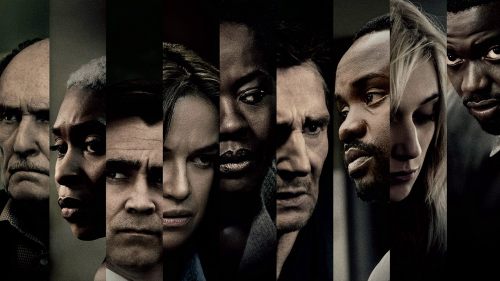Our Daily Trailer: 12 YEARS A SLAVE
I'm continuing Oscar Snub Month today with Steve McQueen's powerful meditation on freedom and our country's deepest shame. 12 Years a Slave took home Best Picture at the Oscars last year, an award it dearly deserved - not as some concession inspired by white guilt, but because it was a truly excellent accomplishment. In my brief 29 years on this planet, never have I seen a story about slavery and the cost of freedom portrayed in such a bone-rattling, brutally honest and gorgeously heart-shattering way.
But we're talking about Oscar snubs, and 12 Years a Slave deserved more accolades than it received. Awards mean little at the end of the day, but to be recognized for excellence is always rewarding in itself, even if we're simply gazing from our distant couches in our pajamas, appreciating the ceremony on TV.
Last year, Alfonso Cuaraon's Gravity took home the Best Cinematography Oscar, while 12 Years a Slave was shut out of the category completely (other nominees included Nebraska, Prisoners, and Inside Llewyn Davis). Steve McQueen's film was nominated for Best Editing, but lost to Gravity. These are two awards that should have belonged to McQueen and his production team. Sure, Gravity is sort of awe-inspiring to behold, but that film doesn't have the resonance or the longevity that 12 Years a Slave does and will. Gravity was an achievement in some ways, but it's one of those films where (like the mediocre Birdman and the charming Boyhood) people are more enamored with the conceit than the content. And while that point is surely arguable depending on your view, Gravity took home Best Cinematography the year after Life of Pi took home the same prize - here are two films where the visual content is largely CGI, where the achievement lies in the director and cinematographer's ability to successfully capture placeholders for images to be added later. That seems reductive, I know, but I take issue with awarding directors and cinematographers for their ability to film green screens and tennis balls. Perhaps there should be a separate category for achievements in visual effects. Oh wait, there is.
On the other hand, 12 Years a Slave is an achievement because all of its moving parts work together harmoniously. The cinematography and editing are key to creating an unnerving and poignant experience. Without the success of those elements, 12 Years a Slave is a flat examination of its subjects, a simple transcription. The way the camera uncomfortably lingers on moments like Chiwetel Ejiofor's Solomon Northup hanging precariously from a rope tied to a tree challenges us as viewers to not only continue watching, but to reflect on that harrowing moment and what it means in the context of not only this story, but our own troubled history. McQueen is the kind of director who wants to engage and challenge his audience, and he's done so beautifully in each of his films, cutting precisely to the core of humanity, however messy and off-putting - the sort of stuff we'd prefer not to examine if we can help it. The sort of stuff to which we prefer to remain oblivious.
Cinematography isn't something that just looks great - it's an integral element to visual storytelling. Gravity looks beautiful, but that beauty feels hollow because once you remove the breathtaking visuals, you're left with a rather simplistic story that doesn't really speak to the human experience the same way something like 12 Years a Slave does; it's a film that feels thematically empty because it's so weighted with and rooted in its own visuals.
McQueen's film lost to Gravity for Best Editing, and there is definitely an argument to be made that the success of the latter largely depended on its expert editing, but that same argument can be applied to most films. 12 Years a Slave had the single best moment in film editing in 2013: the scene in which Michael Fassbender's Edwin Epps mercilessly whips Lupita Nyong'o's Patsey (after finding himself dissatisfied with Solomon's own attempt at lashing her), the camera dancing around Patsey, clinging to the post, as hideous lash after lash is visited upon her skin as punishment for wanting nothing more than soap to clean her skin. Thanks to that seamless editing (and incredibly effective sound editing and mixing; the film was notably locked out of both sound award categories), we feel every lash biting into Patsey's skin. It's hypnotically revolting, filmed and edited together in such a manner that expertly skirts exploitation. It's also elegantly grotesque, charged by the anguish of its characters, but never once does it feel unnecessarily graphic or gratuitous.
When we look back on 2013, 12 Years a Slave is the film that we'll remember most, not Alfonso Cuaron's endeavors in manufactured space. We'll recall 12 Years a Slave because that's the film that cut to the core of not just the slave experience, or our country's shame, or the darker parts of humanity, but humanity as a whole. McQueen pulled off an incredible feat, crafting a film that resonates so deeply with experiences both singular and shared, throttling our hearts with unflinching honesty. When we remember Gravity, we'll remember an event film, a thrill ride, a space adventure. When we remember 12 Years a Slave, we'll remember a film that challenged us by reaching deep down inside to that place where we dare not to go or even acknowledge. We'll remember a feeling, not just a film.



